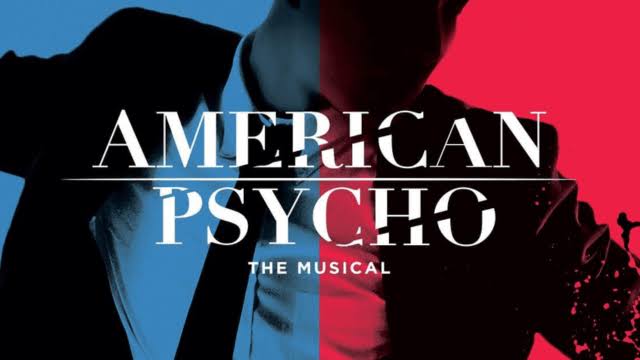Last weekend I saw the Illawarra Performing Art Centre (IPAC) have a stab at adapting American Psycho. The IPAC’s version – which is sadly no longer showing – was musical theatre, and I left the auditorium feeling elated by all the cool critiques about contemporary society, nodding profusely like a pointy-headed doomer at its mention of ‘late-stage capitalism’.
For the unfamiliar, American Psycho (1991) is a five-hundred-something page novel by Bret Easton Ellis. Set during the Wall Street boom of the late 80’s, it follows investment banker, Patrick Bateman, whose obsession with superficial luxury drives him so mad that he starts killing and doing disgusting things to people’s bodies. The book’s graphic depictions of murder and sexual torture had it (at least at one point) sold shrink-wrapped in Australian bookstores.
The book was adapted into the movie American Psycho (2000) which leans on satire to dampen the horrific stuff, excising much of the graphic detail in the book. Patrick Bateman is played by Christian Bale and is the star of many internet memes that mock and/or glorify some contemporary ideal of masculinity – individual wealth, power, and style. Still, Bale’s performance is ridiculous and entertaining, modelling the Patrick we see here in the musical.
If Bateman somehow reflects today’s model of success and power – sans the direct physical violence – then perhaps we can link this to Patrick’s line “I am not real, I am an abstraction, I am simply not there.” In one way, Patrick represents the faults of late-stage capitalism: he commits violence against homeless people, and then women, and then his peers. He’s something of an allegory for socio-economic injustice, that the system benefits the white-male entrepreneur, making him exploit those beneath and around him.
A spoiler-y warning for those who wish to go in blind: in all versions of American Psycho it is revealed that [SPOILER] Patrick was perhaps so crazy that he deluded himself into thinking he committed such violence. Both the book and musical, however, contain a scene which further renders this ambiguous, that he maybe did commit some violence but just not as much as he thought. In any case, all end with the line “THIS IS NOT AN EXIT.” [SPOILER END] Patrick is not cleared of his charges and any textual representation of late-stage capitalism does not fix the problem.
What the musical has over the book is the inclusion of many voices, literally. The book has you stuck in the mind of Patrick, and you slowly go crazy with him – especially during the ten-page expositions on the individual histories and discographies of Patrick’s favourite 80’s bands. The musical has its characters and actors singing with and against Patrick, looking down on him, perhaps ironically, but it lands with a real air that something tragic has happened.
The musical is at least minimally nourishing, but as it comes to a close, Patrick turns to the audience and speaks about his – the musical’s – failure to arrive at any real insight or solution. The tragedy goes meta, referring to itself, its own failure to go all the way in exactly changing its audience for the better.There’s a lot to chew on here for the analytic and literary oglers, but I’m left feeling like some psycho devouring and deconstructing the text’s deconstruction of contemporary sickness. At what point are we supposed to spit it out and recognise our human goodness so that we can construct something better for ourselves?
Image Credit: Merrigong Theatre Company




